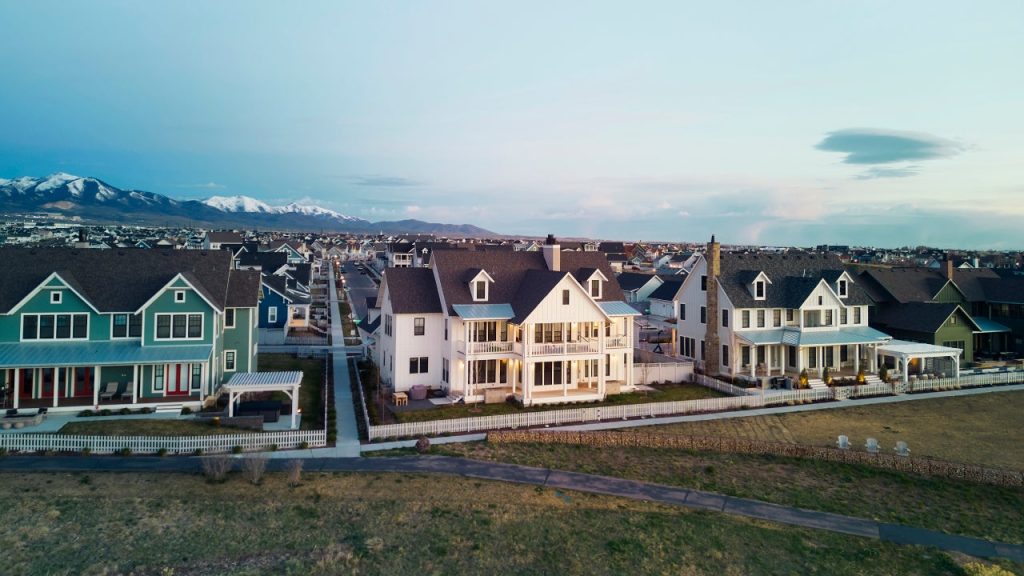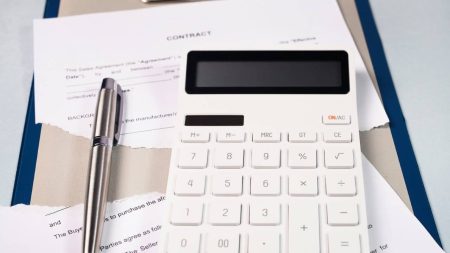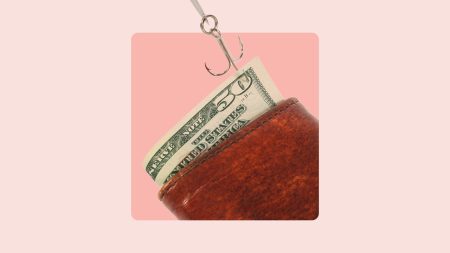A complex financial transaction like buying a house comes with many different fees and costs. That includes closing costs, which are part of the last step in the home sale process. Closing costs are the various fees and expenses that must be paid by both the buyer and seller in order to finalize the deal, and they can add thousands beyond the home’s price tag for buyers — or subtract thousands from the proceeds for sellers.
In the Beehive State, as in most states, closing costs can include lender fees, taxes, Realtor commissions and much more. Whether you’re buying or selling a home, here’s what to know about closing costs in Utah.
How much are closing costs in Utah?
The tab for closing costs varies from state to state. The national average closing cost bill totaled 1.81 percent of the average home cost in 2021, not including real estate agent commissions, according to the most recent data from CoreLogic’s Closing Corp. In Utah, that figure was lower at just 1 percent of the home sale price. That’s lower than neighboring Nevada (1.5 percent) but higher than its neighbor on the other side, Colorado (0.7 percent).
Let’s see how 1 percent of a home’s sale price equates today. The median home sale price in Utah in June 2024 was $550,400, according to Redfin data. For a home of that price, closing costs would amount to $5,504. But, because home prices vary by location within the state, the exact amount of closing costs will also vary. For instance, in Salt Lake City, the median price was higher at $625,000, which would mean closing costs of $6,250. But in Ogden, where the median was just $375,000, 1 percent would be $3,750.
Who pays closing costs in Utah, buyers or sellers?
Of course, the total amount of closing costs is not paid by just one party — both buyers and sellers must pay their share. Many of these costs are mortgage-related: The buyer typically has a variety of lender-related fees, while the seller pays closing costs related to paying off their own mortgage, among other things. And, while the state does not require either party to hire a real estate attorney, both may find it helpful to do so anyway; if they do, the legal fees will be due at closing as well. Here’s a breakdown of who usually pays what in Utah.
Common closing costs for buyers
- Lender fees: As part of the mortgage process, a lender may charge for your application, to check your credit, originating your loan and more. If you choose to pay mortgage points to lower your loan’s interest rate, that’s another lender-related fee. Applicants can shop around to find a lender with the lowest fees possible.
- Title fees: In order to ensure a home is not impacted by any liens or encumbrances, a title search will be conducted. In addition, Utah buyers typically pay for their lender’s title insurance policy.
- Appraisal: A professional home appraisal will be required to ensure that the home is worth at least the amount the lender is providing you to make the purchase. This will usually cost around $500.
- Home inspection: While home inspections are optional, most buyers pay to have one completed in order to ensure there are no hidden or unexpected issues impacting the home. Inspections are conducted by independent professionals and typically cost another few hundred dollars.
- Prepaids: As part of the home purchase process, an escrow account may be established in which the buyer deposits money to prepay for a certain amount of property taxes and homeowners insurance premiums. There may also be an escrow fee associated with this step.
Common closing costs for sellers
- Transfer taxes: Unlike many states, Utah does not charge a real estate transfer tax, so you’re off the hook for that common expense. However, the sale and transfer of ownership of a home must be recorded with the local government, and there is usually a modest fee associated with this step.
- Title insurance: While Utah buyers pay their for their lender’s title policy, sellers usually pay for the owners’ policy.
- Outstanding property taxes and homeowners dues: The home’s property taxes and homeowners association dues (if applicable) must be paid right up until the sale is completed.
- Concessions: If you have agreed to any concessions in order to close the deal, such as paying for a needed repair or covering a portion of your buyer’s closing costs, these fees are typically subtracted from the home purchase proceeds at closing.
- Mortgage payoff: If there’s a remaining balance on your existing mortgage, that must also be payed off with the proceeds from the sale. There may be additional fees associated with this step.
- Agent commissions: Realtor commissions are often the priciest part of closing costs. As the seller, your agent will likely make somewhere between 2.5 and 3 percent of your home’s final sale price — on a median-priced $550,400, that can cost you up to $16,512. Until recently, the seller was on the hook for the buyer’s agent’s fee as well, doubling that cost. However, thanks to a recent lawsuit settlement, sellers may not be required to pay the buyer’s agent anymore. Be sure your contract spells out who is paying for each agent’s commission fee.
Lowering your closing costs in Utah
Like many aspects of a real estate transaction, some closing costs can be negotiated. This can potentially lower your out-of-pocket costs. For example, both seller and buyer should look into their agent’s commission fee and whether it can be lowered. This expense is often open to negotiation, and even a small discount can make a big difference, particularly on a higher-priced home.
If you’re a homebuyer, be sure shop around for a mortgage lender to find the best rates and lowest fees. Buyers can also ask the seller to cover some portion of their closing costs, though in a robust seller’s market you may not have too much leverage. If a problem is found in your home inspection, the cost to rectify it can be another negotiation point.
Buyers can also reduce closing costs by looking into government-sponsored assistance programs. Programs are typically offered at the city, county and state level to help defray the expense of the down payment and closing costs — Utah has several programs that can help if you qualify, especially if you’re a first-time homebuyer.
Find a local real estate agent
While it is possible to go it alone when buying or selling a home, having an experienced local real estate agent by your side can make the process much easier to navigate. If you’re still looking for a Utah Realtor, consider asking friends or family members for a recommendation. And before signing a contract, take the time to interview a few candidates to find someone who understands your needs as well as your local market. It can also be a good idea to research a Realtor’s online presence and read past customer reviews.
FAQs
-
Yes. Both the buyer and seller pay at least some form of closing costs in any real estate transaction, no matter what state you’re located in. In Utah, typical costs that fall to the seller can include title insurance, mortgage-payoff fees, seller concessions and Realtor commissions.
-
The priciest aspect of closing costs tend to be real estate agent commission fees. Both the buyer’s agent and the seller’s agent will earn between 2.5 and 3 percent of the home’s sale price at closing — on a $400,000 house, for example, 2.5 percent comes to $10,000.
Read the full article here










